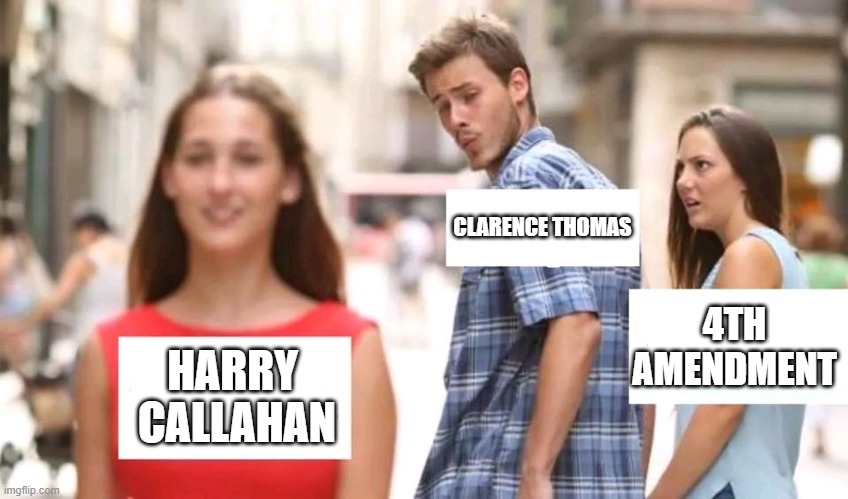Rights without remedies

Yesterday, the Trumpified Supreme Court held that Border Patrol agents (and, for all practical purposes in most contexts, all federal law enforcement officers) have the unlimited power to violate your explicit constitutional rights with impunity:
On Wednesday, the Supreme Court abolished individuals’ ability to sue Customs and Border Protection agents who violate their constitutional rights. In the process, the conservative supermajority came close to smothering lawsuits against all federal officers who defy the Constitution, granting them near-impenetrable immunity. The liberal justices, in dissent, took the extraordinary step of identifying the cause of this disturbing development: the addition of new justices appointed by Donald Trump.
Wednesday’s case, Egbert v. Boule, is the latest and most thorough attack on accountability for federal agents who break the law. The decision arises from a loophole in the federal statute that lets individuals sue law enforcement for damages. This statute authorizes suits against state law enforcement officers who infringe on civil rights. Sheriffs, local cops, highway patrol—all can be sued in federal court for constitutional violations. But the statute does not authorize such suits against law enforcement officers who work for the federal government. If the courts do not provide some measure of accountability, these officers can flout the law with near impunity.
The Supreme Court addressed this problem in 1971’s Bivens v. Six Unknown Named Agents of Federal Bureau of Narcotics, which involved a claim of excessive force against federal narcotics agents. While “the Fourth Amendment does not in so many words provide for its enforcement by an award of money damages,” a majority held, it is “well settled” that “federal courts may use any available remedy to make good the wrong done.” In other words, a right without a remedy is no right at all, so the courts have an obligation to craft one when Congress fails to do so.
Conservative justices have been gunning for Bivens for decades, arguing that it runs afoul of the separation of powers between Congress and the judiciary. In recent years, they’ve come close to victory. The court has insisted that the precedentapplies only when the facts of a case are nearly identical to Bivens. So, in theory, when federal agents use excessive force, they can still be sued. But if that force takes place in some “new context” with “special factors”—say, some connection to national security—the suit will fail. And because there is invariably some distinction between two cases, courts usually had an excuse to toss out Bivens claims.
In Egbert, Justice Clarence Thomas replaced this standard with an even more stringent one. Judges hearing Bivens claims, he wrote for the court, should now simply ask “whether there is any reason to think that Congress might be better equipped to create a damages remedy.” He then explained why Congress is always better equipped for this task because it implicates a “range of policy considerations.”
Is there at least a plausible “originalist” argument for the claim that the judiciary cannot created remedies to enforce constitutional rights? Hahaha no:
It would be one thing if the conservative justices had hard proof that federal courts lack authority to create remedies. But its support for this proposition is exceedingly weak in light of strong evidence that federal courts had this authority in the founding era. Thomas’ opinion in Egbert is not only counterintuitive but contrary to historical practice. It is living constitutionalism at its worst, a reflection of the majority’s policy preferences dressed up in the rhetoric of originalism.
Is there even any non-fascist internal logic to the opinion? Absolutely not:
As Justice Harlan explained in Bivens, there'd be little point in *having* constitutional rights (which exist solely to constrain the political branches) if we leave the ability to *enforce* those rights *to* the political branches.
And yet, that's where #SCOTUS has left things. pic.twitter.com/l2y4Q7OqAB— Steve Vladeck (@steve_vladeck) June 8, 2022
Republican elites who justified supporting Donald Trump while acknowledging his complete unfitness for office are fond of citing THE COURTS as a pretext. When they say that, this is what they mean — they want to be sure that the federal courts are controlled by judges who think that citizens should have no redress when their explicit constitutional rights are flagrantly violated by federal officers. Which in itself explains why Trump fits the Republican party like a glove.


